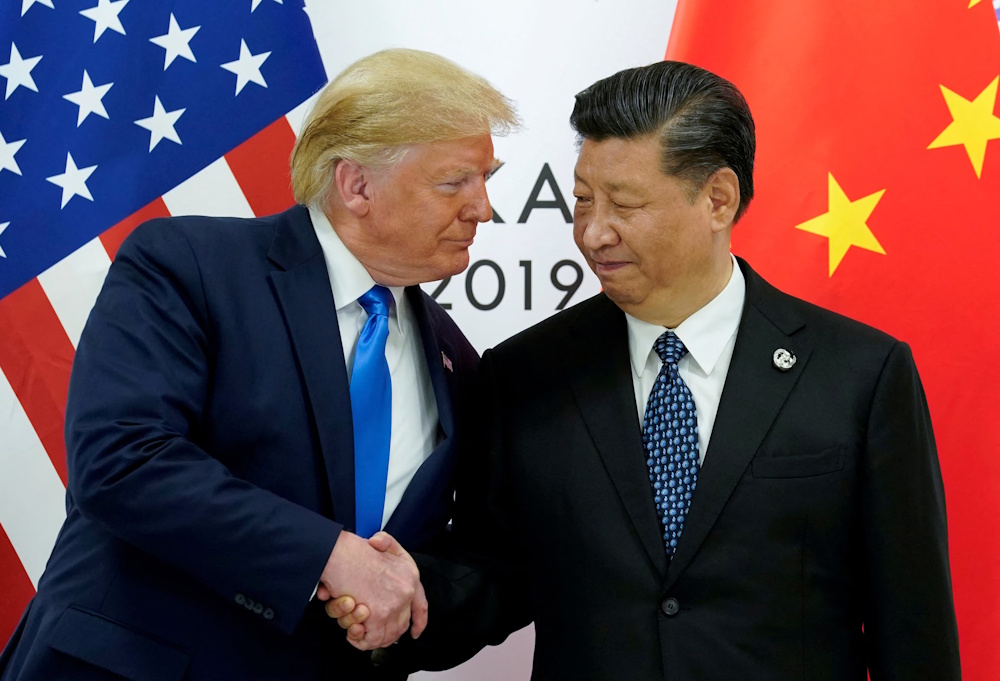
The ongoing confrontation between the heads of the world’s two largest economies has rapidly intensified, and should President Donald Trump and Chinese President Xi Jinping fail to de-escalate the situation promptly, both countries are likely to incur significant costs. Elevated tariffs had caused trade between the two nations to come to a complete standstill earlier this year, prior to a prolonged ceasefire that resulted in significant reductions of duties on each other’s goods. However, trade tensions have resurfaced, as Trump has threatened to implement tariffs beginning at 130% on Chinese exports by November 1, an increase from the current minimum rate of 30%. Trump also indicated his readiness to implement export controls on what he termed “any and all critical software” to China. Beijing has indicated its intention to respond to all these actions. On Friday, Trump expressed confidence in the potential for an amicable resolution with Xi, informing reporters of his intention to meet with the Chinese leader during the upcoming Asia-Pacific Economic Cooperation summit in South Korea later this month. US Treasury Secretary Scott Bessent, who plays a pivotal role in trade negotiations with China, remarked on Friday that “things have deescalated” recently.
Earlier this month, Beijing unveiled intentions to impose restrictions on the export of rare-earth minerals, essential components required for the operation of various electronic devices. With the implementation of new regulations anticipated later this year, China has expanded its roster of highly restricted rare-earth exports by incorporating five additional rare-earth elements to the existing list of seven. Furthermore, China’s strategy includes the requirement for licenses pertaining to the technology essential for the mining, smelting, and processing of rare earth elements, as well as the production of magnets. Licenses would be required for foreign governments and businesses to engage in the exchange of rare earths sourced from China or any technology that incorporates them. The Ministry of Commerce of the country stated that the restrictions are intended to prevent materials from “being used, directly or indirectly, in military and other sensitive fields.”
Following Beijing’s announcement of those measures, Trump expressed, “Our relationship with China over the past six months has been a very good one, thereby making this move on Trade an even more surprising one.” He stated that China has “quietly amassed into somewhat of a Monopoly position” with rare earths and described the new restrictions as “a rather sinister and hostile move, to say the least.” US Trade Representative Jamieson Greer, who has collaborated on trade agreements with China alongside Bessent, stated last week: “It’s a clear repudiation of everything we’ve been working towards for the last six months, which was a stable tariff situation and a continued flow of rare earths.” Beijing’s response followed a sequence of actions taken by Washington that provoked the displeasure of Chinese officials. Among them were increased restrictions on global exports to Chinese technology firms, including Huawei, concerning any components of products produced with American equipment or software. A representative from China’s Ministry of Commerce characterized the action revealed last month as “extremely malicious,” further stating that the nation would “take necessary measures” to safeguard the rights and interests of its enterprises.
Earlier this month, the Trump administration initiated taxation on Chinese vessels docked at American ports, in addition to products transported on ships manufactured in China. Beijing implemented a reciprocal fee structure at its ports. Washington, until recently, maintained stringent controls on the export of highly advanced chips, with the objective of hindering Beijing’s progress in artificial intelligence. A meeting between Trump and Xi a potential avenue for direct dialogue to address their differences, rather than relying on intermediaries from the American and Chinese administrations. However, circumstances could just as readily deteriorate, driving the two nations further apart.

